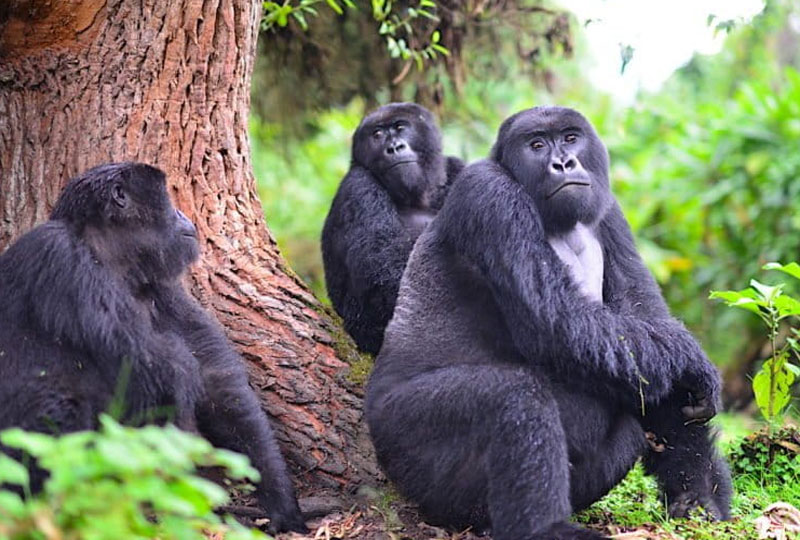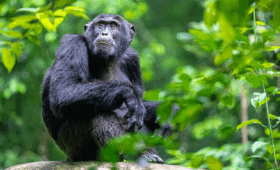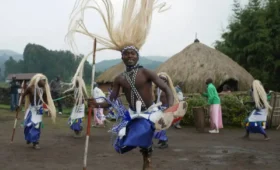History of Gorilla Conservation in Rwanda.
Rwanda is home to one of the world’s most treasured wildlife species: the mountain gorilla. The story of gorilla conservation in this small East African nation is one of dedication, innovation, and international collaboration that has helped transform the fate of these magnificent primates from near extinction to a symbol of hope.
Early Challenges: Near Extinction and Habitat Loss
In the mid-20th century, mountain gorillas faced grave threats. Poaching, habitat destruction due to expanding human settlements, and political instability in the region pushed gorilla populations dangerously close to extinction. By the 1960s and 70s, estimates suggested fewer than 250 mountain gorillas remained in the wild, primarily confined to the Virunga Mountains spanning Rwanda, Uganda, and the Democratic Republic of Congo.
The Birth of Conservation Efforts: Dian Fossey’s Legacy
The turning point for gorilla conservation came in 1967 when Dr. Dian Fossey, a pioneering primatologist, arrived in Rwanda to study mountain gorillas. She established the Karisoke Research Center between Volcanoes National Park’s Bisoke and Karisimbi volcanoes.
Dr. Fossey’s groundbreaking work combined scientific research with anti-poaching activism. She raised global awareness about the gorillas’ plight through documentaries and books, inspiring conservation movements worldwide. Despite facing many challenges, including threats from poachers, her dedication laid the foundation for modern gorilla protection.
Establishment of Volcanoes National Park and Government Commitment
In 1973, the Rwandan government officially established Volcanoes National Park to protect gorilla habitat. This marked a critical step in formalizing conservation efforts, enabling park management to regulate tourism, control poaching, and support habitat restoration.
Since then, Rwanda has become a global leader in mountain gorilla conservation, investing heavily in park infrastructure, anti-poaching patrols, and community outreach.
Gorilla Tourism: A Sustainable Conservation Model
Starting in the 1980s, Rwanda pioneered responsible gorilla tourism, allowing controlled numbers of visitors to trek gorillas under strict guidelines that minimize disturbance and ensure safety for both gorillas and tourists.
Tourism has become a vital source of funding for conservation and local communities. Permit fees directly support park management and community development projects, incentivizing locals to protect gorillas and their forests.
Recent Successes and Growing Populations
Thanks to decades of effort, mountain gorilla populations have steadily increased. As of the latest censuses, Rwanda’s gorilla families have grown to over 600 individuals across the Virunga Massif and Bwindi Impenetrable Forest (Uganda).
This remarkable recovery highlights the effectiveness of collaborative conservation involving governments, NGOs, researchers, and local communities.
Challenges Ahead and the Future of Gorilla Conservation
While success stories abound, mountain gorillas still face threats from habitat encroachment, disease transmission, and political instability in neighboring regions.
Ongoing conservation requires continued vigilance, community engagement, and sustainable tourism practices. Rwanda remains committed to protecting this natural heritage while expanding conservation education and research.
Visit Rwanda and Support Gorilla Conservation
By trekking gorillas with Mandari Travel, you’re not only fulfilling a dream but also contributing directly to conservation efforts. A portion of your permit fees and safari payments help fund anti-poaching patrols, community projects, and habitat preservation.
Join us in celebrating Rwanda’s incredible conservation journey and help ensure mountain gorillas thrive for generations to come.
Plan Your Gorilla Trekking Adventure Today
Mandari Travel offers expertly guided treks combined with cultural tours and safaris. Contact us to start your journey:
Email: info@mandaritravel.com.com
Call/WhatsApp: +255 750 900 811
Fill out the form below for a personalized safari package, including gorilla trekking, cultural experiences, and more.




